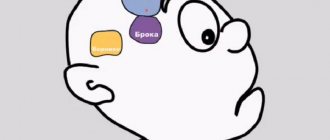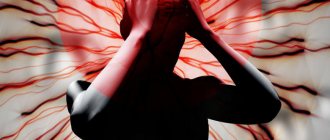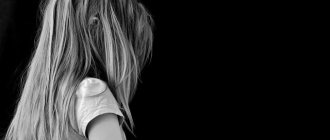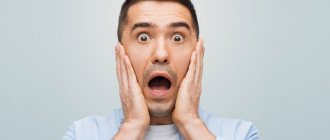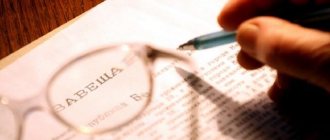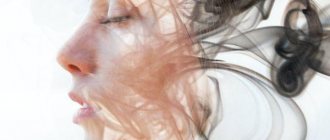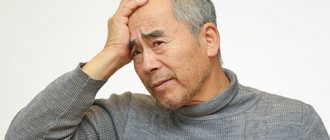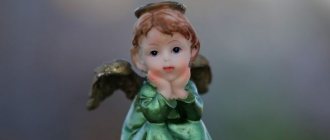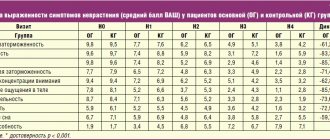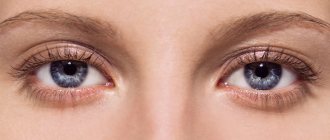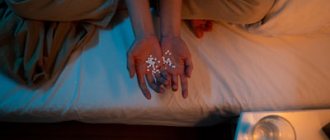What is phagophobia
The name literally translates as “fear of eating.” Phagophobia is an irrational, panicky fear of swallowing something. Popular shapes:
- fear of swallowing food;
- fear of swallowing saliva;
- fear of swallowing pills.
A person is afraid of experiencing unpleasant sensations, choking and dying. There are different types of fear of swallowing. For example, some people are afraid only of solid food, while others are afraid of drinking water, still others are afraid of choking when swallowing pills, and still others are afraid of absolutely everything related to swallowing.
Note! Phagophobia can be confused with anorexia. In both cases, the person is afraid to eat, refuses food, and loses weight. But in the first case, this is associated with the fear of choking, and in the second case, with the fear of gaining weight.
Reasons for fear of swallowing
Most often, phagophobia develops against the background of the fact that one day a person actually choked. A feeling of suffocation, accompanied by pain in the chest and throat, coughing, dizziness, and rapid heartbeat can frighten anyone. The brain quickly remembers this incident, because the inability to take a full breath is perceived as a direct threat to a person’s life.
Other reasons for fear of swallowing food:
- Intimidation by parents. “Don’t play around, or you’ll choke,” “Don’t talk while eating, or you’ll choke,” etc. Or one day the child choked, and he was more frightened by the parents’ reaction (they shouted, swore, flogged him).
- Impressionability. Perhaps someone told the person a story about someone else choking on food and dying. Or such a scene was in the film, they wrote about it on a social network, etc.
- Primary mental disorders, tension, stress. This condition can cause involuntary muscle contractions, which can lead to problems with swallowing.
- Aversion to certain foods or to food as such. Perhaps the person tried something unpleasant and the memories still cause a spasm. Or the phagophobe was overfed as a child.
- Severe throat disease. Perhaps due to illness, any meal caused discomfort in the throat. The illness passed, but the fear remained.
Interesting! In rare cases, phagophobia is caused by hormonal imbalance in the body.
Bulimia
Bulimia nervosa
– an eating disorder, which is characterized by regular bouts of overeating against a background of obsessive control over body weight and the adoption of extraordinary measures to reduce the influence of the food eaten on weight gain. These measures include: cleansing the body using induced vomiting or enemas, taking diuretics and laxatives. Bulimia is common in certain diseases of the central nervous and endocrine systems.
Bulimia nervosa, both according to the DSM-III-R classification and the ICD-10 criteria, is included in the group of mental disorders. Clinical manifestations include symptoms such as: dehydration, low potassium levels, metabolic disorders, arrhythmia. With frequent vomiting, erosion of tooth enamel occurs.
When diagnosing, there are three main signs:
- Overeating, uncontrolled consumption of large quantities of food. Manifestation: attacks of sudden appetite and absorption of huge amounts of food; attacks of painful hunger and night hunger and/or night eating.
- Regular use of vomiting, taking diuretics and laxatives, strict diets, grueling physical activity as a way to influence body weight.
- The dependence of self-assessment on body shape and weight.
Treatment for bulimia
Bulimia nervosa is treatable and many disorders are reversible. Complex treatment is carried out by a psychotherapist, psychiatrist and nutritionist. First, you need somatic treatment aimed at restoring your physical condition.
The use of medications, in particular antidepressants, may be prescribed if there are clear signs of depression and/or anxiety or in the presence of concomitant mental disorders (neuroses or obsessive-compulsive disorder).
Among the various methods of psychotherapy for bulimia, cognitive behavioral therapy is especially indicated, the task of which is to bring the patient to an awareness of his responsibility and control over nutrition. Other types of therapy are also used: behavioral, interpersonal, family therapy. The final goal of any method of psychotherapy is the patient’s acceptance of himself, his appearance, his individual physical parameters and the transition to an emotionally healthy attitude towards life.
Psychogenic overeating
- This is compulsive overeating, which leads to excess weight and occurs as a consequence of distress. People who are prone to obesity are especially susceptible to overeating, and the presence of negative stressful situations (loss of loved ones, accident, etc.) is a trigger. Sometimes the disorder begins after childbirth or surgery.
With compulsive overeating, there is often no real physical feeling of hunger. This is why you choose foods rich in carbohydrates or fats (fast food, snacks, sweets). Such an attack-like snack distracts from stress, but not for long, and the person soon needs a new meal.
Psychogenic binge eating varies in severity from mild to extreme, bordering on bulimia. The following possible symptoms are identified:
- episodic loss of control over the process of food absorption;
- episodic overeating in stressful situations;
- eating an abnormally large amount of food in a short period of time;
- eating large quantities of food without feeling hungry;
- absorption of food until it is impossible to breathe and move;
- eating in a depressed state (dejection, sadness, boredom);
- eating alone out of a sense of shame associated with the very act of eating;
- eating alone in order to hide the fact of gluttony;
- feeling disgusted, guilty, or depressed after eating.
Compulsive overeating
is designated as a special diagnosis of “Eating and Eating Disorders” in both ICD-11 and DSM-5, and is characterized as the patient consuming an amount of food over a given period of time that is many times more than most people would eat in a similar period of time in a similar situation. It is also necessary to acknowledge the loss of control over both the amount of food and the cessation of the eating process. To be diagnosed with binge eating disorder, three or more of the following symptoms are required:
- Consuming food until you feel uncomfortably full.
- Eating occurs much faster than usual.
- Feeling disgusted with yourself, guilty, or sad after eating.
- Eating large amounts of food without feeling hungry.
- The habit of eating alone due to the shame of realizing how much has been eaten.
ICD-10 does not identify compulsive overeating as a separate mental disorder, but, nevertheless, determines that excessive obesity can lead to an individual’s lack of confidence in his appearance and contribute to depressive states. Obesity, as a side effect of the use of antipsychotics or antidepressants, is also not considered in the context of binge eating disorder, but is classified as drug-induced obesity. When diagnosing psychogenic overeating, it is necessary to exclude polyphagia (gluttony, constant need for food).
Compulsive overeating
is an eating disorder that combines physiological (excess weight and associated metabolic problems, etc.) and psychological (severe emotional experiences of the patient, difficulties with restrictions and diets) factors. Accordingly, treatment can only be effective with an integrated approach to therapy conducted by a psychotherapist/psychiatrist and a nutritionist. Antidepressants, antiepileptic drugs and drugs for the treatment of obesity are prescribed as medications.
Signs and symptoms of fear of swallowing
A phagophobe avoids canteens, get-togethers with friends, and family dinners. To eat food, he chooses quiet places and solitude. Remember how closely food is associated with communication: business negotiations in a cafe, meeting with an old acquaintance, someone’s birthday, etc. A person has to either give up all this or carefully plan his menu and take liquid preparations. But how to explain all this to other people, how to get away from their obsessive offers to try something?
In general, the phagophobe gradually isolates himself within the walls of the house. He creates a “safe” menu (each phagophobe has his own). First, the phagophobe refuses foods such as fish, then all solid foods. Each meal lasts a very long time, since the phagophobe needs to tune in, and he also chews each piece very slowly (he even tries to eat liquid food a little at a time).
A phagophobe is frightened by one type of solid food. When contacting an object of fear, a number of somatic reactions occur:
- nausea,
- vomit,
- headache,
- dizziness,
- chills,
- arrhythmia,
- tachycardia,
- feeling of suffocation and coma in the throat,
- irritability,
- desire to run away.
In some cases, due to tension, a phagophobe experiences a spasm of the swallowing muscles. Because of this, a person can actually choke. However, a medical examination does not find gastrointestinal pathologies. In this case we are talking about psychosomatics: a person scares himself, somatic reactions are a consequence of a phobia.
Note! Even before eating, a person begins to feel suffocated. Against this background, he may have a panic attack. At such moments, the individual becomes dangerous to himself and others.
Symptoms
Any phobia has a number of different symptoms, with the help of which it is quite simple to identify a phobia. Most often, signs of malaise and dizziness help a specialist make the correct diagnosis of a specific disorder or phobia.
Signs of a phobia when swallowing food are as follows:
Dizziness. Due to insufficient amounts of nutrients, it becomes difficult for a person to live a normal life, and malaise occurs.
Sleep disorder. Due to lack of nutrition, a person may suffer from insomnia and frequent awakenings in the middle of the night.
Irritability. Any fear causes irritability, and it is difficult for a person to cope with his own condition.
Feeling of suffocation. An equally unpleasant feeling, in rare cases, becomes the basis of panic.
Nausea. Sometimes the body is so accustomed to the psychological characteristics of the mind that at the sight of any food a feeling of nausea or even vomiting may occur.
Lump in throat, increased sweating.
Weight loss. This symptom is most noticeable in the later form of this phobia. Most often, the result of the disease is anorexia.
Phagophobe has a particularly strong aversion to any food, in rare cases even to drinks. A state of fear is quite often accompanied by panic attacks, and the body perceives the person’s condition as a basis, resulting in a feeling of nausea and many other symptoms.
When eating, a person chooses food especially carefully, purchases only from trusted sellers, and chews food for a long time.
How to get rid of phagophobia
How to get rid of the fear of swallowing pills, food, water? In the treatment of phagophobia, psychologists use an integrated approach: psychotherapy and medications. Medications include antidepressants, sedatives and anti-anxiety drugs. Among the methods of psychotherapy, hypnosis, cognitive behavioral psychotherapy, psychoanalysis, and art therapy have a positive effect.
How to get rid of phagophobia yourself as an adult
Is it possible to get rid of the fear of swallowing (phagophobia) on your own? Yes, use the anchoring technique. The idea is that you choose a positive trigger that helps you relax enough to swallow the product or pill calmly. Now in more detail:
- remember a situation when you felt as calm as possible (choose the feeling you want to experience instead of anxiety and fear);
- choose something from the outside world (sound, smell, object) that you associate with this state of calm;
- look at the object (another action depending on the selected trigger) and consciously reproduce that pleasant situation;
- Feel it as much as possible at the level of thoughts, body, soul.
Exercise regularly during your free time and before you need to swallow anything. Soon you will only need to look at the trigger and a state of calm will come naturally.
On forums you can find the following advice on how to overcome the fear of swallowing food and choking:
- Chew food slowly and thoroughly (you can start with soft foods and gradually move on to hard foods);
- remind yourself, convince yourself that nothing bad will happen;
- face your fear in practice as often as possible;
- Get a support group, eat in company.
You can get acquainted with the responses of psychologists and psychotherapists to the form at this link. Experts analyze a real situation from a request from a client who once choked and is now afraid to swallow.
And here you will find an analysis of another real case of phagophobia - tips on how to get rid of the fear of swallowing food from the forum of psychologists, reviews from specialists.
Another discussion on the request “Phagophobia and OCD: help.” Review from a psychologist, discussion of medications for phagophobia.
What to do if your child is afraid to swallow food
How to treat phagophobia in a child? What to do if he is afraid to swallow food:
- do not focus on the problem;
- do not force the child to eat;
- create the safest and most positive psychological atmosphere around the child;
- invite your child to eat from a spoon, from your hands, even if your child has been eating on his own for a long time (“remember how you and I used to eat together,” “mom is nearby, everything is fine”);
- Offer to eat what the child likes most (you can start with liquid food and move on to solid food);
- offer to play “tasting”, “astronaut”, “restaurant”, etc.
Art therapy has a good effect in the treatment of phagophobia in children. Draw fear with your child, sculpt it from plasticine. In this case, the object will be the object that the child once appeared with and then became afraid of.
The causes and manifestations of the fear of swallowing food in children are no different from the fear of swallowing in adults.
Causes of phagophobia
Fear of choking (phagophobia) is incredibly destructive to a child’s body. The cause of this unpleasant disease largely depends on the age of the baby. If we are talking about a baby, such fear may arise due to an excessive amount of milk in the mother's breast. The baby does not have time to eat and chokes, his desire to swallow completely disappears.
In older children, the fear of choking appears for completely different reasons. For example, after suffering from a sore throat, a child is afraid to swallow solid food, because during illness this process caused severe pain. Perhaps he accidentally swallowed some kind of foreign body, as a result of which he is now terrified of solid food.
The reason may also be that the baby cannot concentrate on one process or is too lazy to chew food. The main reason for the occurrence of this disease is that the child is afraid to eat after choking.
In mild form, phagophobia manifests itself in relation to certain types of food. This could be fish with small bones, dry flour products, nuts, tablets, etc. In more severe cases, any food causes fear.
This phobia can lead to exhaustion and pose a serious threat to the body of your son or daughter. Therefore, when a child becomes afraid of swallowing food, all possible measures must be taken to rid him of fear as soon as possible.
How to fight?
Treatment of phagophobia is possible without causing psychological trauma to the baby. Modern methods of getting rid of this disease do not harm the digestive system of the toddler. So, there is a special facial massage that can develop a swallowing reflex.
So, you have a difficult situation in front of you - your child is afraid to swallow food. What to do to treat such a disease, psychologists suggest:
- explain that swallowing food is a normal process that does not harm health, but on the contrary, it is considered necessary;
- offer your baby some sweetness that he cannot resist;
- be persistent and start feeding your son or daughter only solid food;
- try to take your child on a visit more often or offer food in public places so that he can watch how others eat.
If a child is choking and is afraid to eat, then you can use a gradual swallowing technique, starting with small and ending with larger objects. Talk to him seriously and explain that all people choke from time to time, but are alive and well.
Why is fear of swallowing dangerous?
The most dangerous complication of the fear of swallowing is cybophobia (the fear of swallowing). If there is a fear of food, then it is not far from exhaustion. Moreover, we are talking about both physical exhaustion and psychological burnout. A phagophobe develops secondary mental disorders and problems: sleep disorders, depressive tendencies.
Interesting! Often, OCD (obsessive-compulsive disorder) develops against the background of a fear of swallowing. A phagophobe comes up with a ritual that supposedly protects him while eating.
Why is sittophobia dangerous?
Poor nutrition due to fear of food leads to complete exhaustion of the body
Fear of choking or fear of swallowing food leads to refusal to eat. A person reduces portions and limits himself to one meal a day. Also, many patients with this disorder replace any solid food with liquid food, and their diet consists of juices, yoghurts or just water. Poor nutrition leads to the development of vitamin and mineral deficiency, which negatively affects the functioning of the entire body as a whole. Gradually the person loses weight and develops exhaustion.
Fear of food can mask other dangerous pathologies, such as neurosis or anorexia, and also acts as a cause of their development.
